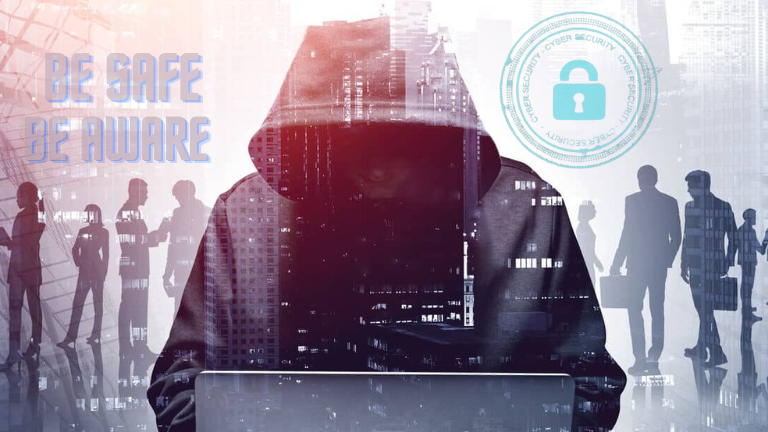Cyber Security Tips
Today’s digitally-driven culture controls created it more important than ever to be preserve our online identity. The growth in harmful measures and cyber threats, we must stand and be attentive in safeguarding our private data and ensure a secured online experience. Ten crucial cybersecurity points that are covered in your online life from possible dangers.
Strong and Distinct Passwords :
- Steer clear of using popular or simple passwords like “123456” or “password.”
- Choose lengthy, intricate passwords using a combination of special characters, digits, and capital and lowercase letters.
- For each of your online accounts, use a separate password in order to reduce the impact of a potential breach.
- A good tip would be to use a password manager to create and safely store different passwords for each of your accounts.

Turn on two-factor verification (2FA):
- Set up two-factor authentication on any web accounts you have that allow it.
- Even in the unlikely event that someone succeeds to crack your password, two-factor authentication helps prevent unwanted access by requiring a second verification method—such as a code texted to your mobile device—in addition to your password
Note : Adding two-factor authentication to your statement counts another layer of security against would-be cybercriminals
Update your operating system and software:
- To guarantee you have the most recent security fixes, update your operating systems, apps, and software on a regular basis.
- Updating software is important since weaknesses in old software are frequently exploited by cybercriminals.
- If at all possible, turn on automatic updates to streamline the procedure and guarantee your protection at all times.
Note : Being one step ahead of cyber dangers requires maintaining the most recent versions of your operating systems and software.
Keep an Eye Out for Phishing Attempts :
- Proceed with caution when opening attachments or clicking links in emails, especially those that come from unidentified or dubious sources. Phishing attempts often mimic faithful emails and websites in an step to mislead people into disclosing private data.
- Always keep an eye for any suspicious activity like typographical problems, misspelled URLs, and requests for personal information.
Make use of safe Wi-Fi networks:
- Drive explicit of shared Wi-Fi networks, mainly while using them to access personal data or conduct online transactions. Since public networks are frequently unprotected, hackers can more easily intercept your data.
- Use a VPN (Virtual Private Network) to protect your data and encrypt your connection if you must use public Wi-Fi.
Make Regular Backups of Your Information:
- Regularly backup your critical data and files to the cloud or an external hard drive.
- Having a recent backup guarantees you won’t lose important data in the case of a hardware malfunction or cyber attack.
- Verify that your backups exist encrypted and secured to safeguard your private data.
Use social media safely:
- Be cautious while posting data on social media.
- Beware from revealing personal data to the public, that includes your place of residence, contact information, or full date of birth.
- Check and modify your privacy settings frequently to restrict who can see your personal data.
Public USB Charging Stations: Exercise Caution:
- Public USB charging ports may be tricked into downloading malware or be used to steal data from your device.
- To reduce dangers, get a portable power bank or use your own charging cables and adapters.
- If you have to use a public charging station, think about blocking data transfer with a USB data blocker.
Keep a Close Eye on Your Financial Accounts:
- Pay special attention to any fraudulent purchases on your credit card and bank statements.
- Configure alerts to notify you of any alterations or questionable activity on your account.
- Report any suspected fraud right away to lessen the damage to your funds and private data.
Be yourself aware and informed:
- Remain ahead on the most recent changes, updates, and best practices in cyber security.
- Become knowledgeable about typical frauds and the methods that online thieves employ.
- When exchanging information online, use caution and be mindful of the possible hazards.
You can significantly enhance your online safety and safeguard your digital life by paying close attention to these ten crucial cyber security tips. Keep in mind as cyber risks continue to increase, it is essential to be aware and on a regular basis evaluate your security practices. You can safeguard your private information and have a stress-free online experience by taking a proactive and knowledgeable stance. Remain protected and safe.